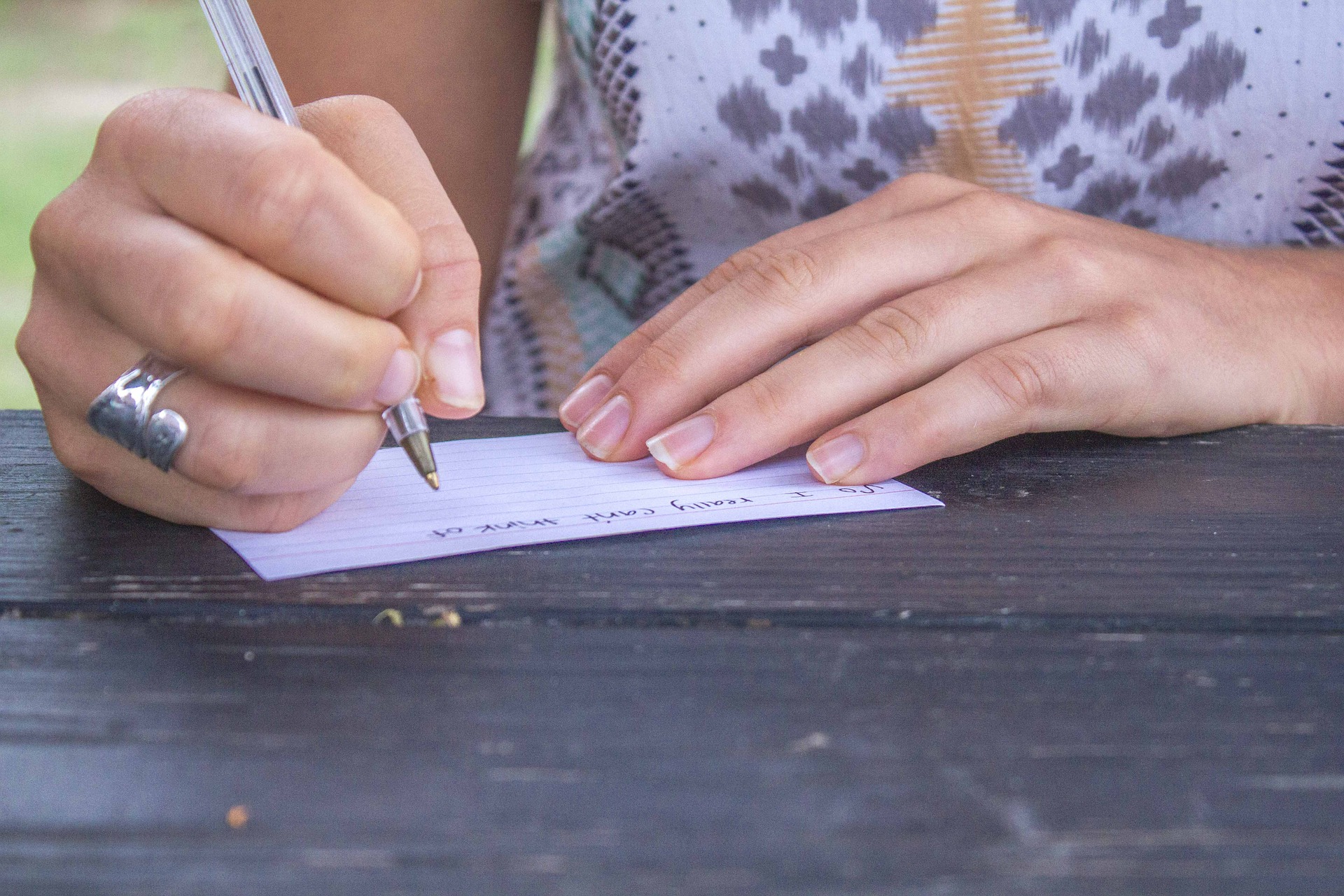Recently my son and his family traveled to the beach, so I came into town to keep an eye on their house, cat, and dog. Finding the key, I opened the basement door and went inside. On the opposite wall the large dry-erase board proclaimed “WELCOME GRANDPA! We love you!”
A note of five words, and yet it lit a candle in my heart.
Most of us know the power of the note, although, if you are like me, you often neglect the opportunity to practice that power.
A note is short and to the point, a quick hug, a pat on the back, a burst of applause from the stands.
We witness such a moment in the movie “Chariots of Fire.” Here British athlete Eric Liddell is about to run the most important race of his life in the Olympics. Jackson Schultz, an American runner who admires Liddell’s strong Christian faith – Liddell refused to run another race because it fell on a Sunday – approaches him right before the race and wordlessly hands Liddell a note. Liddell unfolds the note and reads, “It says in the Old Book, ‘He that honors me I will honor.’” Liddell clasps the note in his hand, carries it in the race, and wins.
Of course, many today send such notes via text, which is all to the good. It’s quick and convenient, and lets others know what they mean to us.
But the best notes are those written by hand. Recipients of such notes can hold them in their fingers, and if they choose, fold them and put them in their wallet or purse, carrying them like a talisman, a reminder of worth, throughout their day.
Sometimes such a message can be conveyed without words. One of my granddaughters once gave me a tiny heart she’d drawn and carefully cut from a piece of typing paper. For a year, I carried that heart with me, protected in a small case, before losing both the case and the note. Once I replace that case, I’ll be asking for another heart.
The power of the note increases when delivered without notice or warning. In “Finding Forrester,” a reclusive writer, William Forrester (Sean Connery), advises a young protégé “The key to a woman’s heart is an unexpected gift at an unexpected time.” This maxim applies to the rest of us as well. The surprise of a complimentary or uplifting note can bring a rush of pleasure.
Such unexpected gifts take little time and effort, and even little creativity. I knew a parent who would on occasion copy out some famous motivational quotation and insert it into the next chapter of her mathematically challenged Algebra I student. “Never give in, never give in, never, never, never, never” – Churchill’s words might inspire a daughter struggling in chemistry class, a husband trying to keep his business afloat, a friend in the middle of a life crisis.
Have a friend struggling with addiction? Give him Seneca: “The bravest sight in the world is to see a great man struggling against adversity.”
That guy you met playing tennis has just told you he loves you? Turn to Audrey Hepburn: “The best thing to hold onto in life is each other.”
All of us, especially adults, need words of affirmation and encouragement. The guy rushing off to work who scrawls on his wife’s daily projects list – “I love you, honey. Thanks for all you do” – just brought a burst of sunlight into his home. The boss who sticks a Post-It note on an employee’s computer screen – “Keep up all the good work, Bill!” – not only boosts Bill’s morale, but is building a healthy workplace. The regular in the café who discovers the waitress is going through a brutal divorce can offer strength with words left with the tip: “Katie, one reason I and others come to this café is because of you, your smile, your kindness, the goodness we see in you. Remember always that you are appreciated and loved.” Mundane words, yes, but probably not to Katie.
When I was eleven and on a family vacation, we received news that my grandfather was dying. My dad drove our family through the night from North Carolina to Pennsylvania, and my mom was able to say good-bye to her father before he died later that day. At some point that week, we were sitting with our grandmother in her farmhouse kitchen when she said, “He left me a note telling me he loved me before going out to the barn that morning.”
Though a boy, I understood from my grandmother’s voice the power of that simple gesture, just a note, just a line or two, but a memory she would keep for the rest of her days.
—
Image Credit:
Pixabay
















Leave a Comment
Your email address will not be published. Required fields are marked with *